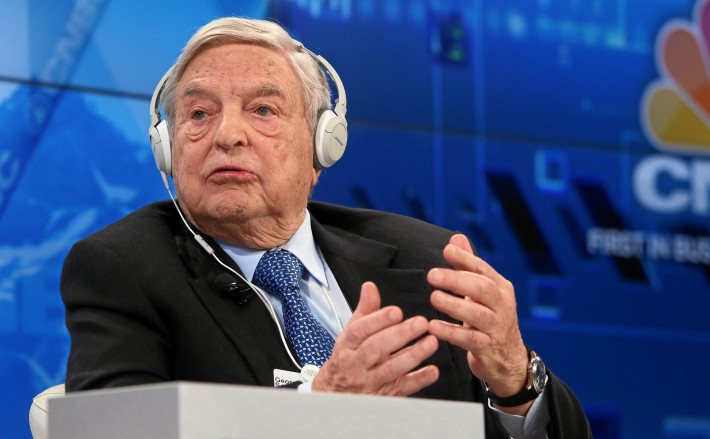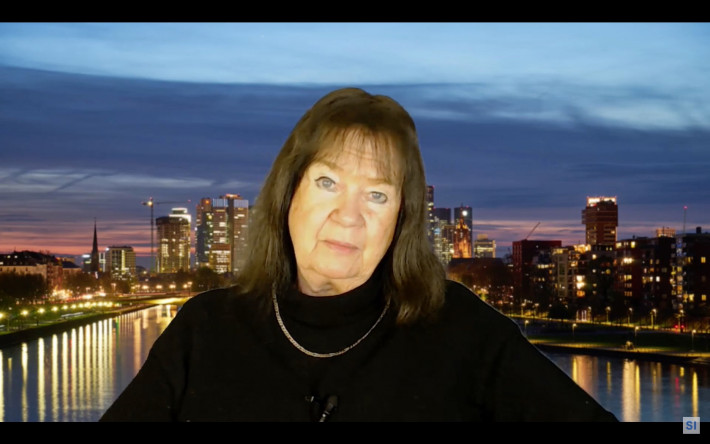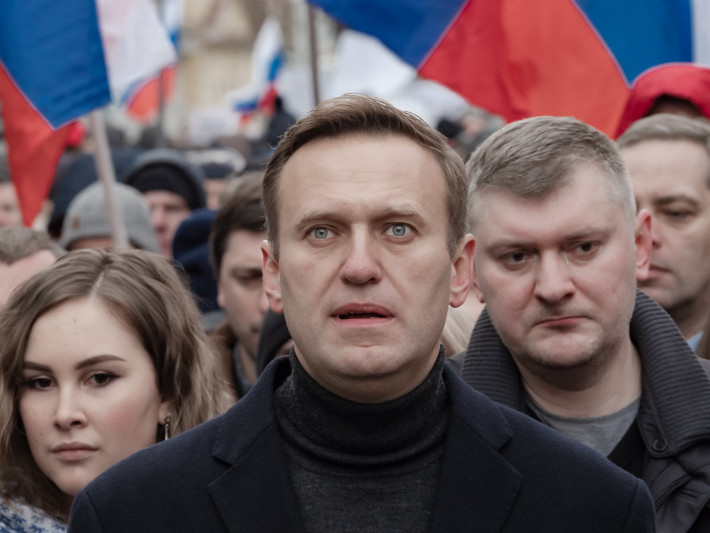by Helga Zepp-LaRouche
July 10—After the hasty withdrawal of U.S. and NATO troops from Afghanistan—U.S. troops, except for a few security forces, were flown out in the dark of night without informing Afghan allies—this country has become, for the moment but likely not for long, the theater of world history. The news keeps pouring in: On the ground, the Taliban forces are making rapid territorial gains in the north and northeast of the country, which has already caused considerable tension and concern in Turkmenistan, Uzbekistan, and Tajikistan, and they have captured the western border town Islam Qala, which handles significant trade flows with Iran. At the same time, intense diplomatic activity is ongoing among all those countries whose security interests are affected by the events in Afghanistan: Iran, Pakistan, India, Russia, China, to name only the most important.
Can an intra-Afghan solution be found? Can a civil war between the Afghan government and the Taliban be prevented? Can terrorist groups, such as ISIS, which is beginning to regain a hold in the north, and Al-Qaeda, be disbanded? Or will the war between Afghan factions continue, and with it the expansion of opium growing and export, and the global threat of Islamic terrorism? Will Afghanistan once again sink into violence and chaos, and become a threat not only to Russia and China, but even to the United States and Europe?
If these questions are to be answered in a positive sense, it is crucial that the United States and Europe first answer the question, with brutal honesty, of how the war in Afghanistan became such a catastrophic failure, a war waged for a total of 20 years by the United States, the strongest military power in the world, together with military forces from 50 other nations. More than 3,000 soldiers of NATO and allied forces, including 59 German soldiers, and a total of 180,000 people, including 43,000 civilians, lost their lives. This was at a financial cost for the U.S. of more than $2 trillion, and of €47 billion for Germany. Twenty years of horror in which, as is customary in war, all sides were involved in atrocities with destructive effects on their own lives, including the many soldiers who came home with post-traumatic stress disorders and have not been able to cope with life since. The Afghan civilian population, after ten years of war with the Soviets in the 1980s followed by a small break, then had to suffer another 20 years of war with an almost unimaginable series of torments.
It was clear from the start that this war could not be won. Implementation of NATO’s mutual defense clause under Article 5 after the 9/11 terrorist attacks was based on the assumption that Osama bin Laden and the Taliban regime were behind those attacks, which would thus justify the war in Afghanistan.
But as U.S. Senator Bob Graham, the Chairman of the Congressional “Joint Inquiry into Intelligence Community Activities Before and After the Terrorist Attacks of September 11, 2001,” repeatedly pointed out in 2014, the then-last two U.S. presidents, Bush and Obama, suppressed the truth about who had commissioned 9/11. And it was only because of that suppression that the threat to the world from ISIS then became possible. Graham said at a November 11, 2014 interview in Florida:
“There continue to be some untold stories, some unanswered questions about 9/11. Maybe the most fundamental question is: Was 9/11 carried out by 19 individuals, operating in isolation, who, over a period of 20 months, were able to take the rough outlines of a plan that had been developed by Osama bin Laden, and convert it into a detailed working plan; to then practice that plan; and finally, to execute an extremely complex set of assignments? Let’s think about those 19 people. Very few of them could speak English. Very few of them had even been in the United States before. The two chairs of the 9/11 Commission, Tom Kean and Lee Hamilton, have said that they think it is highly improbable that those 19 people could have done what they did, without some external support during the period that they were living in the United States. I strongly concur…. Where did they get their support?”
This question has still not been answered in satisfactory manner. The passing of the JASTA Act (Justice Against State Sponsors of Terrorism) in the U.S., the disclosure of the 28 previously classified pages of the Joint Congressional Inquiry report into 9/11 that were kept secret for so long, and the lawsuit that the families of the 9/11 victims filed against the Saudi government delivered sufficient evidence of the actual financial support for the attacks. But the investigation of all these leads was delayed with bureaucratic means.
The only reason the inconsistencies around 9/11 are mentioned here, is to point to the fact that the entire definition of the enemy in this war was, in fact, wrong from the start. In a white paper on Afghanistan published by the BüSo (Civil Rights Movement Solidarity in Germany) in 2010, we pointed out that a war in which the goal has not been correctly defined, can hardly be won, and we demanded, at the time, the immediate withdrawal of the German Army.
Once the Washington Post published the 2,000-page “Afghanistan Papers” in 2019 under the title “At War with the Truth,” at the latest, this war should have ended. They revealed that this war had been an absolute disaster from the start, and that all the statements made by the U.S. military about the alleged progress made were deliberate lies. The investigative journalist Craig Whitlock, who published the results of his three years of research, including the use of documents obtained under the Freedom of Information Act (FOIA), and statements from 400 insiders demonstrated the absolute incompetence with which this war was waged.
Then, there were the stunning statements of Lt. Gen. Douglas Lute, the Afghanistan czar under the Bush and Obama administrations, who in an internal hearing before the “Office of the Special Inspector General for Afghanistan Reconstruction” in 2014 had said: “We were devoid of a fundamental understanding of Afghanistan—we didn’t know what we were doing. … What are we trying to do here? We didn’t have the foggiest notion of what we were undertaking…. If the American people knew the magnitude of this dysfunction … who would say that it was all in vain?”
After these documents were published, nothing happened. The war continued. President Trump attempted to bring the troops home, but his attempt was essentially undermined by the U.S. military. It’s only now, that the priority has shifted to the Indo-Pacific and to the containment of China and the encirclement of Russia that this absolutely pointless war was ended, at least as far as the participation of foreign forces is concerned.
September 11th brought the world not only the Afghanistan War but also the Patriot Act a few weeks later, and with it the pretext for the surveillance state that Edward Snowden shed light on. It revoked a significant part of the civil rights that were among the most outstanding achievements of the American Revolution, and enshrined in the U.S. Constitution, and it undermined the nature of the United States as a republic.
At the same time, the five principles of peaceful coexistence, which are the essence of international law and of the UN Charter, were replaced by an increasing emphasis on the “rule-based order,” which reflects the interests and the defense of the privileges of the trans-Atlantic establishment. Tony Blair had already set the tone for such a rejection of the principles of the Peace of Westphalia and international law two years earlier in his infamous speech in Chicago, which provided the theoretical justification for the “endless wars”—i.e., the interventionist wars carried out under the pretext of the “responsibility to protect” (R2P), a new kind of crusades, in which “Western values,” “democracy” and “human rights” are supposed to be transferred—with swords or with drones and bombs—to cultures and nations that come from completely different civilizational traditions.
Therefore, the disastrous failure of the Afghanistan war—after the failure of the previous ones, the Vietnam war, the Iraq war, the Libya war, the Syria war, the Yemen war—must urgently become the turning point for a complete shift in direction from the past 20 years.
Since the outbreak of the Covid-19 pandemic at the very latest, an outbreak that was absolutely foreseeable and that Lyndon LaRouche had forecast in principle as early as 1973, a fundamental debate should have been launched on the flawed axiomatics of the Western liberal model. The privatization of all aspects of healthcare systems has certainly brought lucrative profits to investors, but the economic damage inflicted, and the number of deaths and long-term health problems have brutally exposed the weak points of these systems.
The strategic turbulence caused by the withdrawal of NATO troops from Afghanistan, offers an excellent opportunity for a reassessment of the situation, for a correction of political direction and a new solution-oriented policy. The long tradition of geopolitical manipulation of this region, in which Afghanistan represents in a certain sense the interface, from the 19th Century “Great Game” of the British Empire to the “arc of crisis” of Bernard Lewis and Zbigniew Brzezinski, must be buried once and for all, never to be revived. Instead, all the neighbors in the region—Russia, China, India, Iran, Pakistan, Saudi Arabia, the Gulf States and Turkey—must be integrated into an economic development strategy that represents a common interest among these countries, one that is defined by a higher order, and is more attractive than the continuation of the respective supposed national interests. This higher level represents the development of a trans-national infrastructure, large-scale industrialization and modern agriculture for the whole of Southwest Asia, as it was presented in 1997 by EIR and the Schiller Institute in special reports and then in the study “The New Silk Road Becomes the World Land-Bridge.” There is also a comprehensive Russian study from 2014, which Russia intended to present at a summit as a member of the G8, before it was excluded from that group.
In February of this year, the foreign ministers of Pakistan, Afghanistan and Uzbekistan agreed on the construction of a railway line from Tashkent, the capital of Uzbekistan, via Mazar-e-Sharif and Kabul, Afghanistan, to Peshawar in Pakistan. An application for funding from the World Bank was submitted in April. At the same time, the construction of a highway, the Khyber Pass Economic Corridor, between Peshawar, Kabul and Dushanbe was agreed to by Pakistan and Afghanistan. It will serve as a continuation of the China-Pakistan Economic Corridor (CPEC), a showcase project of the Chinese BRI.
These transportation lines must be developed into effective development corridors and an east-west connection between China, Central Asia, Russia, and Europe as well as a north-south infrastructure network from Russia, Kazakhstan and China to Gwadar, Pakistan on the Arabian Sea, all need to be implemented.
All these projects pose considerable engineering challenges—just consider the totally rugged landscape of large parts of Afghanistan—but the shared vision of overcoming poverty and underdevelopment combined with the expertise and cooperation of the best engineers in China, Russia, the U.S.A., and Europe really can “move mountains” in a figurative sense. The combination of the World Bank, Asian Infrastructure Investment Bank (AIIB), the BRICS (Brazil, Russia, India, China, South Africa) New Development Bank, New Silk Road Fund, and national lenders could provide the necessary lines of credit.
Such a development perspective, including for agriculture, would also provide an alternative to the massive drug production plaguing this region. At this point, over 80% of global opium production comes from Afghanistan, and about 10% of the local population is currently addicted, while Russia not so long ago defined its biggest national security problem as drug exports from Afghanistan, which as of 2014 was killing 40,000 people per year in Russia. The realization of an alternative to drug cultivation is in the fundamental interest of the entire world.
The Covid-19 pandemic and the risk of further pandemics have dramatically underscored the need to build modern health systems in every single country on Earth, if we are to prevent the most neglected countries from becoming breeding grounds for new mutations, and which would defeat all the efforts made so far. The construction of modern hospitals, the training of doctors and nursing staff, and the necessary infrastructural prerequisites are therefore just as much in the interests of all political groups in Afghanistan and of all countries in the region, as of the so-called developed countries.
For all these reasons, the future development of Afghanistan represents a fork in the road for all mankind. At the same time, it is a perfect demonstration of the opportunity that lies in the application of the Cusan principle of the Coincidentia Oppositorum, the coincidence of opposites. Remaining on the level of the contradictions in the supposed interests of all the nations concerned— India-Pakistan, China-U.S.A., Iran-Saudi Arabia, Turkey-Russia—there are no solutions.
If, on the other hand, one considers the common interests of all—overcoming terrorism and the drug plague, lasting victory over the dangers of pandemics, ending the refugee crises—then the solution is obvious. The most important aspect, however, is the question of the path we as humanity choose—whether we want to plunge further into a dark age, and potentially even risk our existence as a species, or whether we want to shape a truly human century together. In Afghanistan, it holds true more than anywhere else in the world: The new name for peace is development!


















